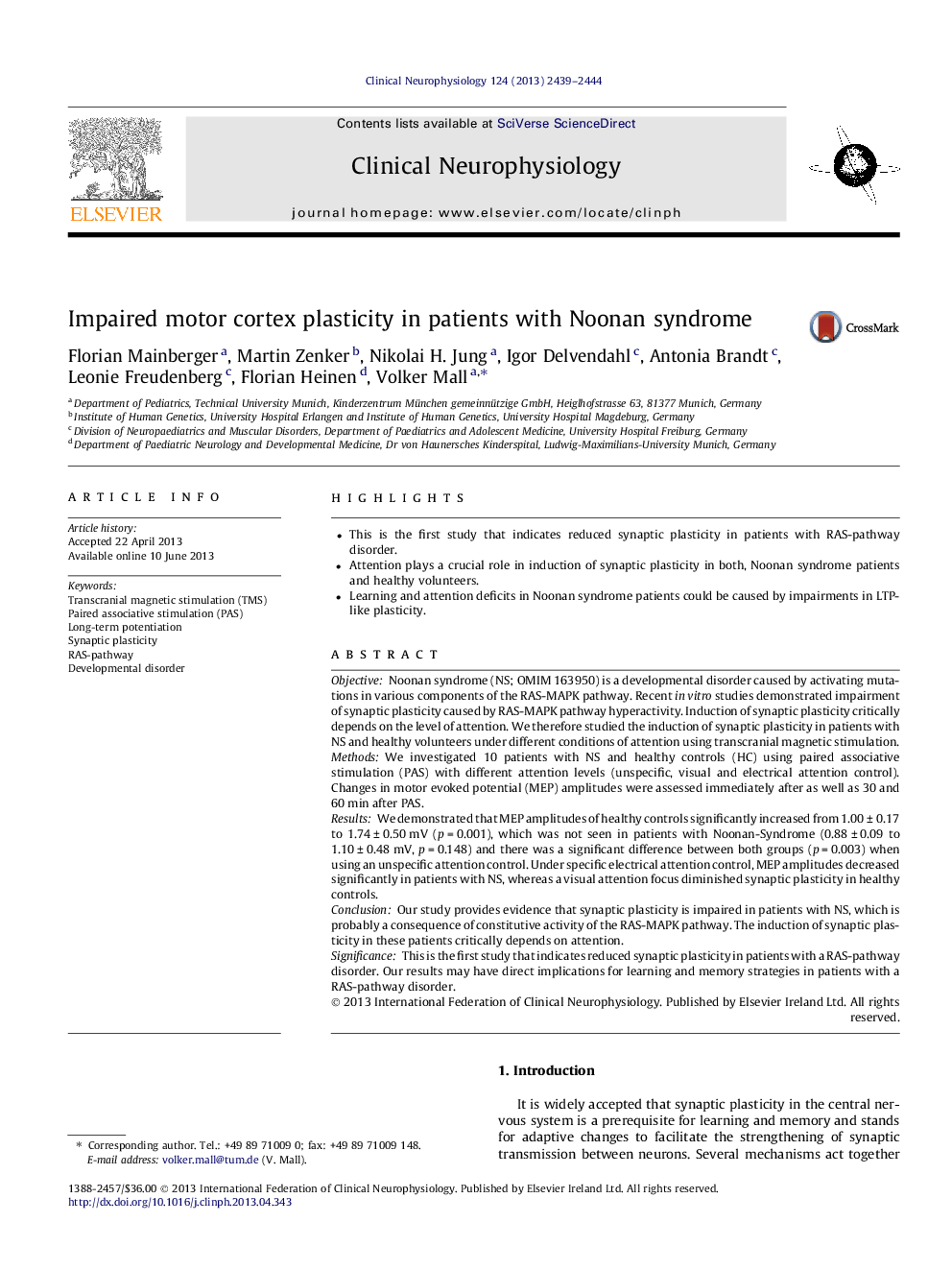| Article ID | Journal | Published Year | Pages | File Type |
|---|---|---|---|---|
| 3044221 | Clinical Neurophysiology | 2013 | 6 Pages |
•This is the first study that indicates reduced synaptic plasticity in patients with RAS-pathway disorder.•Attention plays a crucial role in induction of synaptic plasticity in both, Noonan syndrome patients and healthy volunteers.•Learning and attention deficits in Noonan syndrome patients could be caused by impairments in LTP-like plasticity.
ObjectiveNoonan syndrome (NS; OMIM 163950) is a developmental disorder caused by activating mutations in various components of the RAS-MAPK pathway. Recent in vitro studies demonstrated impairment of synaptic plasticity caused by RAS-MAPK pathway hyperactivity. Induction of synaptic plasticity critically depends on the level of attention. We therefore studied the induction of synaptic plasticity in patients with NS and healthy volunteers under different conditions of attention using transcranial magnetic stimulation.MethodsWe investigated 10 patients with NS and healthy controls (HC) using paired associative stimulation (PAS) with different attention levels (unspecific, visual and electrical attention control). Changes in motor evoked potential (MEP) amplitudes were assessed immediately after as well as 30 and 60 min after PAS.ResultsWe demonstrated that MEP amplitudes of healthy controls significantly increased from 1.00 ± 0.17 to 1.74 ± 0.50 mV (p = 0.001), which was not seen in patients with Noonan-Syndrome (0.88 ± 0.09 to 1.10 ± 0.48 mV, p = 0.148) and there was a significant difference between both groups (p = 0.003) when using an unspecific attention control. Under specific electrical attention control, MEP amplitudes decreased significantly in patients with NS, whereas a visual attention focus diminished synaptic plasticity in healthy controls.ConclusionOur study provides evidence that synaptic plasticity is impaired in patients with NS, which is probably a consequence of constitutive activity of the RAS-MAPK pathway. The induction of synaptic plasticity in these patients critically depends on attention.SignificanceThis is the first study that indicates reduced synaptic plasticity in patients with a RAS-pathway disorder. Our results may have direct implications for learning and memory strategies in patients with a RAS-pathway disorder.
